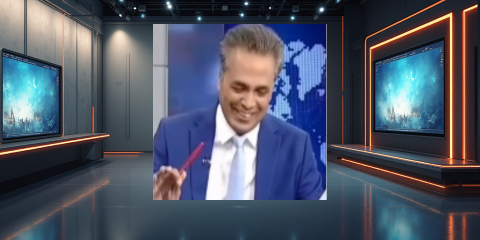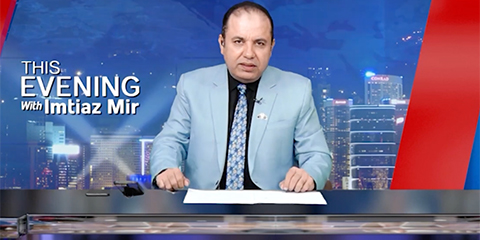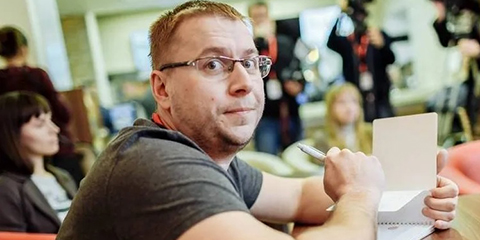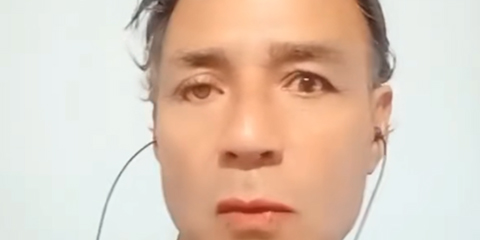
PFUJ calls for end to Impunity for Crimes Against Journalists
November 02, 2025: PFUJ urges Pakistan’s federal and provincial governments to end Impunity for Crimes Against Journalists and ensure their safety and press freedom.
JournalismPakistan.com | Published 8 years ago
Join our WhatsApp channel
NEW YORK - An Ecuadoran judge last night approved an arrest warrant for journalist Fernando Villavicencio on charges of distributing emails sent by public officials, according to the journalist's lawyer. The Committee to Protect Journalists has called on authorities to revoke the warrant.
The charges relate to an October 2013 article Villavicencio wrote with fellow journalist Belén Palma for Ecuadoran news website Plan V that was critical of the government's legal battle with U.S. company Chevron. Alexandra Jaramillo, communications director at the attorney general's office, told CPJ the article contained confidential information and excerpts from emails sent by the attorney general to the president.
The publication of private communication is criminalized under Article 178 of Ecuador's new penal code, passed in 2014, and Article 202 of the previous penal code. The law includes an exception for public information but does not clearly define what that covers. Ramiro García, a lawyer for Villavicencio, told CPJ that the article was published in the public interest.
Jaramillo said a preventative detention order was requested for Villavicencio because he has fled twice before when faced with charges, including a 2012 criminal defamation complaint filed by President Rafael Correa.
Villavicencio, who is now director of the news website Focus Ecuador, previously worked as an aide to former National Assembly representative Clever Jimenéz, who was cited in the Chevron article. Jimenéz faces charges of divulging protected information in email blasts and television interviews. The Plan V article's co-author, Palma, was not charged. If convicted, Villavicencio could face up to three years in jail.
"If sent to prison, Fernando Villavicencio would be imprisoned without a trial on the basis of charges that violate international standards of free expression," said Carlos Lauría, CPJ's senior program coordinator for the Americas. "Prosecutors should drop all charges against him immediately."
The case against Villavicencio began in 2013 when authorities searched the homes of the journalist and Jimenéz, and removed computers and documents related to investigations into corruption, according to Focus Ecuador.
Villavicencio's wife, Verónica Sarauz, told CPJ the case was still open in May 2016, when an article by Villavicencio alleging corruption in the state oil company was published in Plan V. On June 11, Correa called on the attorney general's office to quickly prosecute the case against Villavicencio and Jimenéz, according to an article in the state-run newspaper El Telégrafo.
Press freedom groups and relatives of Villavicencio, who recently announced his intention to run as an opposition party candidate for the National Assembly, say the charges demonstrate political prosecution. "There is a desire to silence Fernando as part of a government strategy to prevent further allegations of corruption from appearing, in addition to preventing Fernando from participating in the upcoming elections as a representative," his wife, Sarauz, said.
The prosecution of journalists for publishing leaked or confidential material violates international standards of freedom of expression, according to a 2010 joint declaration by the Organization of American States and the United Nations. The special rapporteur for freedom of opinion and expression at the U.N. and the special rapporteur for freedom of expression at the Inter-American Commission on Human Rights stated that "journalists, media workers and civil society representatives, who receive and disseminate classified information because they believe it is in the public interest, should not be subject to liability unless they committed fraud or another crime to obtain the information." - Committee to Protect Journalists

November 02, 2025: PFUJ urges Pakistan’s federal and provincial governments to end Impunity for Crimes Against Journalists and ensure their safety and press freedom.

November 02, 2025: Impunity for crimes against journalists deepens worldwide as Pakistan reports a 60 percent surge in attacks and weak enforcement of safety laws.

November 01, 2025: Pakistan Press Foundation reports 137 attacks on journalists in 2025, highlighting rising threats, legal harassment, and censorship on the International Day to End Impunity.

November 01, 2025: A viral Samaa TV clip featuring MNA Sher Afzal Marwat’s crude remarks and Talat Hussain’s laughter raises questions about the declining ethics of Pakistani television.

October 31, 2025: Police foiled a plot to kill DawnNewsTV journalist Tahir Naseer in Rawalpindi after arresting suspects hired for Rs200,000. Naseer says threats followed his reporting.

October 31, 2025: CPJ calls on Pakistan to bring Imtiaz Mir’s killers to justice after the journalist was allegedly murdered by a banned militant group in Karachi.

October 30, 2025: The PFUJ has condemned a fabricated drug case against journalist Matiullah Jan, calling it an attempt to silence him and urging authorities to quash the charges immediately.

October 30, 2025: NewsOne TV remains on air but faces mass layoffs and delayed salaries, exposing Pakistan’s worsening media crisis and financial instability.

November 02, 2025 Independent outlet All About Macau to halt print and online operations amid rising pressure, financial strain, and legal threats, sparking press freedom concerns in the city.

November 01, 2025 Belarus court jails journalist Siarhei Chabotska for extremism and defaming the president, highlighting Minsk’s ongoing crackdown on press freedom.

November 01, 2025 Mexican journalist Miguel Angel Beltran was found murdered in Durango. CPJ urges authorities to ensure justice amid rising violence against journalists in Mexico.

November 01, 2025 UNESCO survey finds one-third of media lawyers cannot effectively defend journalists due to threats, limited resources, and lack of specialization.

October 31, 2025 Radio Free Asia, a US government-funded broadcaster covering tightly controlled Asian media environments, has suspended all news operations after federal funding dried up.